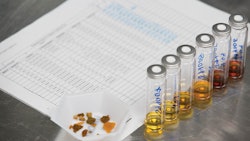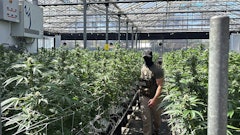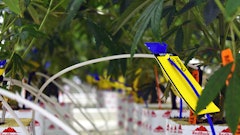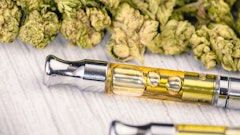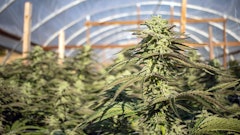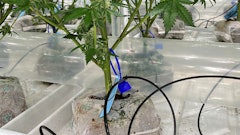BERKELEY, Calif., Sept. 22, 2017 -- Steep Hill Labs, Inc., the global industry leader in cannabis testing and analytics, today released a study, entitled "Study of Pesticides in Cannabis Plant Clones" (see http://landing.steephill.com/cleanclones for the full white paper) which shows that – whether through direct use or via cross-contamination – the presence of pesticides in the California cannabis supply is endemic and can be sourced to the persistent presence of pesticides in clones, according to a press release.
In making the announcement, CEO Jmichaele Keller said, "When we released the first study on pesticides in October of 2016, many growers approached Steep Hill saying that they did not use pesticides, they were organic, they were trying to do the right thing for their patients and consumers. After hearing this over and over again, we knew there was something wrong in the supply chain. It dawned on me, IT'S IN THE CLONES. We started formulating a plan to discover the root of the problem, because our mission is to make sure that growers have all of the tools and expertise needed to successfully pass new California regulations. We undertook this study to understand the concern of our clients who were also perplexed by the pesticide reports we were issuing. The conclusions in the attached study indicate a significant number of failures at the clone stage. We realized that serious problems in the California cannabis supply chain could result in 2018 if the very source material from which the cannabis was being grown for large scale production was already contaminated with pesticides failing current regulations. We at Steep Hill want to work together with California regulators, growers, product manufacturers and the medical community to solve this problem for the safety and success of the California cannabis supply."
"The report documents clone sources and locations, descriptions of how samples were prepared and analyzed, and the comprehensive findings," Reggie Gaudino, Ph.D and author of the study remarked. "A crucial issue in the industry is that very few growers are breeding to deliver genetic stability, unlike other crops which have been stabilized over decades utilizing sophisticated agricultural processes. Stable genetic lines provide the ability to grow from seed and thus produce hardy, reproducible product. We need to work together to insure that traditional practices in the industry are re-examined and changed in light of this data."
Donald Land, Ph.D, and a co-author of the report remarked, "When the 'mothers' of clones are contaminated with pesticides, particularly those that are systemic, so too are the clone offspring. We look forward to working with the California cannabis industry to establish best practices to substantially reduce the need for the use of pesticides as a whole, and to help set the standard for clean clone production in the future."
Authors of this study include: Anthony Torres, Wilson Linker, Donald Land Ph.D, Reggie Gaudino, Ph.D.
For more information about cannabis testing, please visit the Steep Hill website: http://steephill.com.












